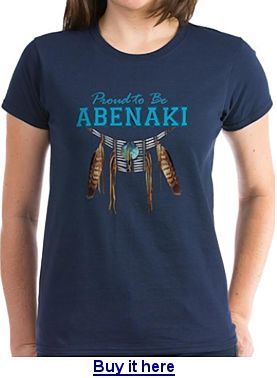Apologies, but the page you requested could not be found. Perhaps searching will help.
Native American Tribes
- US Tribes A to Z Profiles
- State Recognized Tribes
- Black Indians A-Z
- Extinct Tribes A-Z
- First Nations A-Z
- Terminated Tribes
- Unrecognized Tribes A-Z
- Tribes by Confederacy
- Tribes by Language
- Algic Language Family
- Caddoan Language
- California Dialects
- Chimakuan Language
- Chinookan Language
- Chumashan Language
- Comecrudan Language
- Coosan Language Family
- Creole Language Family
- Eskimo-Aleut Language
- Hokan language family
- Iroquoian Languages
- Keres Language Isolate
- Muskogean Language
- Na-Dene Language
- Native Trade Languages
- Penutian language family
- Siouan-Catawban
- Salishan Languages
- Tanoan–Kiowa
- Uto-Aztecan Language
- Yuki–Wappo Languages
- Tribes by Region
- ARCTIC TRIBES
- CALIFORNIA INDIANS
- GREAT BASIN INDIANS
- PLAINS INDIANS
- NORTHEAST INDIANS
- Abenaki Indians
- Algonquin Indians
- Delaware / Lenape
- Ho-Chunk / Winnebago
- Huron / Wyandot
- Illinois Indians
- Iroquois Indians
- Kickapoo Indians
- Mahican Indians
- Maliseet Indians
- Menominee Indians
- Miami Indians
- Mikmaq Indians
- Mohegan Indians
- Munsee Indians
- Narragansett Indians
- Nipmuck Indians
- Ojibwa / Chippewa
- Passamaquoddy
- Pennacook Indians
- Penobscot Indians
- Pequot Indians
- Powhatan Indians
- Sac & Fox Nation
- Shawnee Indians
- Shinnecock Indians
- Wampanoag Indians
- NORTHWEST COAST
- Chinook Indians
- Eyak Natives
- Gitxsan
- Haida Nation
- Haisla Indians
- Hoh Indians
- Klallam / Sklallam
- Kwakiutl / Kwakwaka wakw
- Lummi Indians
- Makah Indians
- Nisgaa / Tsetsaut Indians
- Nuxalk
- Quinault Indians
- Snohomish Indians
- Suquamish Indians
- Tlingit
- Tongass Indians
- Tulalip Indians
- Tsimshian Nation
- Wakashan
- Wuikinuxv / Oowekeeno / Rivers Inlet
- PLATEAU CULTURE
- SOUTHEAST INDIANS
- SOUTHWEST TRIBES
- SUB-ARCTIC TRIBES
- Tribes by State
- Arizona Indian Tribes
- Alabama Tribes
- Arkansas Indian Tribes
- California Indian Tribes
- Colorado Indian Tribes
- Connecticut Indian Tribes
- Delaware Indian Tribes
- Georgia Tribes
- Hawaii Tribes
- Idaho Indian Tribes
- Indiana Indian Tribes
- Illinois Indian Tribes
- Iowa Indians
- Kansas Tribes
- Kentucky Indian Tribes
- Louisiana Indian Tribes
- Maine Indian Tribes
- Maryland Indian Tribes
- Massachusetts Tribes
- Michigan Indian Tribes
- Minnesota Indian Tribes
- Mississippi Indian Tribes
- Missouri Tribes
- Montana Tribes
- Nebraska Indian Tribes
- Nevada Tribes
- New Hampshire Tribes
- New Jersey Tribes
- New Mexico Indian Tribes
- New York Tribes
- North Carolina Tribes
- North Dakota Tribes
- Ohio Tribes
- Oklahoma Indian Tribes
- Oregon Indian Tribes
- Pennsylvania Tribes
- Rhode Island Tribes
- South Carolina Tribes
- South Dakota Tribes
- Tennessee Tribes
- Texas Indian Tribes
- Utah Indian Tribes
- Vermont Tribes
- Virginia Indian Tribes
- Washington Indian Tribes
- West Virginia Tribes
- Wisconsin Tribes
- Wyoming Tribes
- Treaties by Tribe
Native American Subject
- Native Actors, Movies & TV
- Arts and Crafts
- Native American Authors
- Bands, Gens and Clans
- Culture & Tribal Customs
- Education & Scholarships
- Famous Chiefs / Leaders
- Famous Abenaki
- Famous Apache
- Famous Assiniboine
- Blackfoot / Blackfeet
- Famous Cherokee
- Famous Cheyenne
- Famous Comanche
- Famous Crow
- Delaware Chiefs / Leaders
- Famous Freedmen
- Famous Hawaiians
- Hochunk/Winnebago
- Famous Kiowa
- Famous Miami
- Famous Modoc Chiefs
- Famous Mohawk
- Famous Navajo
- Famous Nez Perce
- Famous Ojibwe
- Famous Ottawa
- Powhatan Leaders
- Famous Sac and Fox
- Famous Seneca
- Seneca Leaders
- Famous Shawnee
- Famous Shoshone
- Shawnee Leaders
- Shoshone Chiefs
- Famous Sioux
- Sioux Chiefs
- Suquamish / Duwamish
- Famous Wampanoag
- Wyandot Chiefs
- Famous Yakama
- Historical Photos
- Native American Quotes
- Native American Athletes
- Native American Soldiers
- Native American Women
- Indian Casinos
- Native Genealogy
- Native American History
- Native American Humor
- Native American Law
- Legends, Lore & Symbols
- Alabama Legends
- Algonquin Legends
- Apache Legends
- Arapaho Legends
- Arikara Legends
- Bigfoot Legends
- Blackfoot / Blackfeet
- Cahuilla Legends
- Cherokee Legends
- Cheyenne Legends
- Chinook Legends
- Coushatta Legends
- Creation Legends
- Crow Indian Legends
- Goshute Legends
- Gros Ventre Legends
- Hidatsa Legends
- Inuit Legends
- Iroquois Legends
- Legends, Lore & Symbols
- Kalispel Legends
- Kwakiutl Legends
- Makah Legends
- Maliseet Legends
- Miami Legends
- Mi’kmaq Legends
- Mission Indian Legends
- Miwok Legends
- Modoc Legends
- Navajo Legends
- Ojibwe/Chippewa
- Omaha Legends
- Origin Legends
- Osage Legends
- Ottawa Legends
- Paiute Legends
- Passamaquoddy Legends
- Pawnee Legends
- Pima,Papago, O’odham Legends
- Pit River Indian Legends
- Ponca Legends
- Potawatomi Legends
- Pueblo Legends
- Quinault Legends
- Salish Legends
- Seminole Legends
- Seneca Legends
- Shawnee Legends
- Shoshone Legends
- Sioux Legends
- Squamish Legends
- Tsimshian Legends
- Ute Legends
- Winnebago / Hochunk
- Wiyot and Yurok Legends
- Wyandotte / Huron
- Yokut Legends
- Zuni Legends
- Unidentified Legends
- Native American Music
- Native Obituaries
- US Indian Reservations
- Native American Statistics
- Native American Symbols
- Native American Tattoos
- Native Events / Tourism
- Native American Videos
- Mailbag Archive
- Native American Archives
Shopping
- Close Outs
- Art / Hand Painted
- Bags / Medicine Bags
- Beadwork
- Bows / Arrows / Quivers
- Breastplates
- Clothing / Hats / Shoes
- Craft Supplies
- Dance / Prayer Fans
- Dance Staff / Coup Stick
- Dreamcatchers
- Drums / Flutes / Rattles
- Figurines / Fetishes
- Hair Accessories
- Hat Bands & Belts
- Jewelry & Accessories
- Knives
- Medicine Wheels
- Mirror Ornaments
- Peace Pipes
- Talking Sticks
- Shields / Wallhangings
- Tomahawks / War Clubs
Site Info
Disclosure
In compliance with FTC guidelines, please assume the following about all links on this website that are outbound links: Since I share products and services I use and love with my readers, assume that I may receive a small commision if you buy something or subscribe to a service from a link on this website (at no additional cost to you). If you do buy something, thanks for your support !
Among others, we are a participant in the Amazon Services LLC Associates Program, an affiliate advertising program designed to provide a means for us to earn fees by linking to Amazon.com and affiliated sites. Pages on this site may include affiliate links to Amazon and its affiliate sites on which the owner of this website will make a referral commission.
The shopping links above this notice go to our own store, NativeCrafts.us





